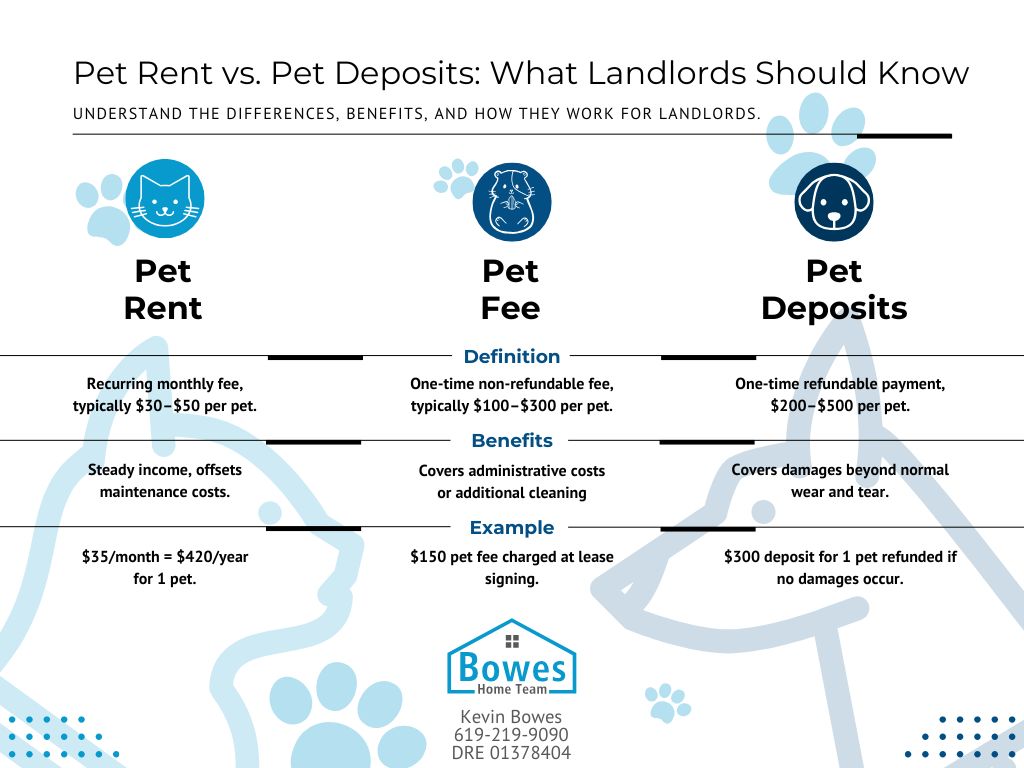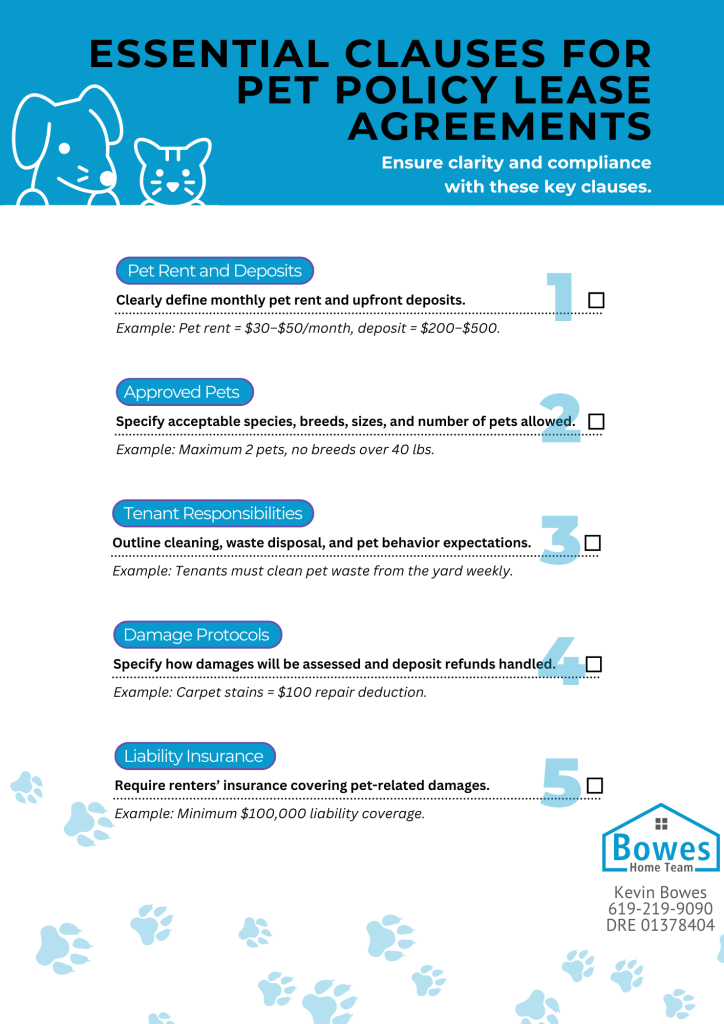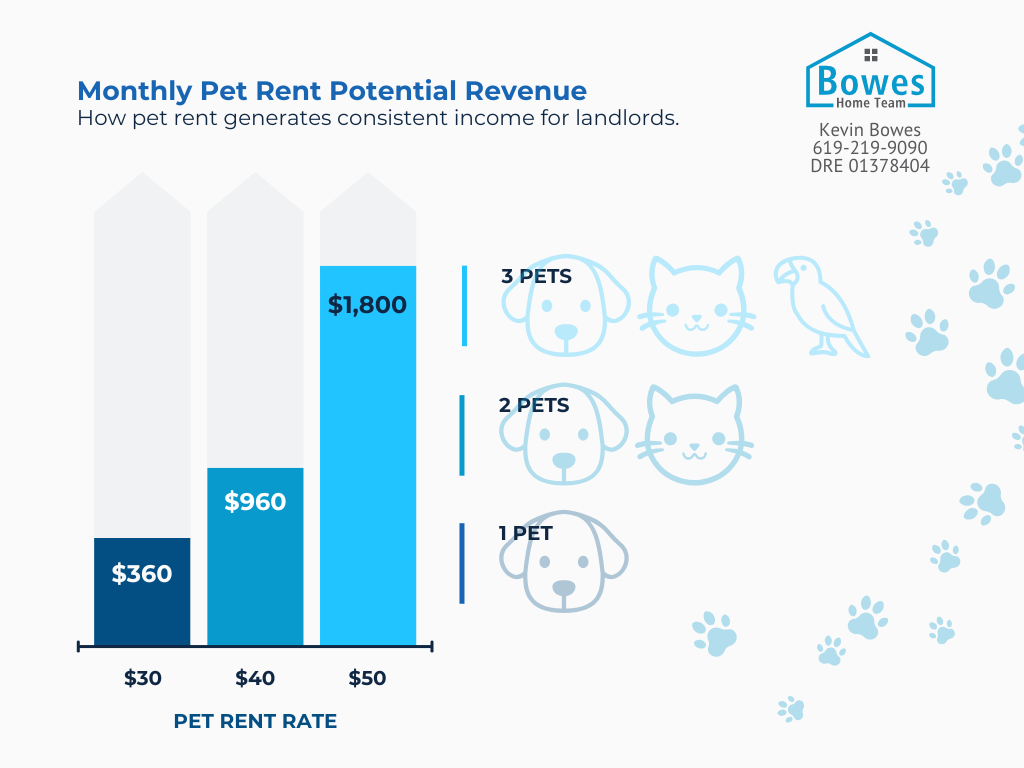Renting with pets is increasingly common, but it presents unique challenges for landlords and tenants alike. To create harmonious rental experiences, landlords must balance tenant needs with protecting their property. This guide explores key aspects of managing pets in rentals, including pet rent, deposits, and crafting effective pet policy agreements for 2025.
The rise in pet ownership—currently over 70% of U.S. households own a pet—has transformed the rental market. Many renters now prioritize finding pet-friendly homes, and landlords who adapt to this trend can benefit from a larger tenant pool. However, allowing pets also introduces potential risks, making clear policies and strategic planning essential.
Pet rent and pet deposits are financial strategies landlords use to cover potential damages or additional wear and tear caused by pets. Both serve distinct purposes and are important tools for property owners to mitigate risk.

Landlords should consider the following factors:
| Aspect | Pet Rent | Pet Deposit | Pet Fee |
| Payment Type | Monthly Fee | One-Time Payment | One-Time Fee |
| Refundable? | No | Yes, if no damages | No |
| Purpose | Covers ongoing costs | Covers repair costs | Covers associated pet costs |
A clear, legally sound pet policy lease agreement ensures expectations are set from the start. This protects landlords while creating a transparent arrangement for tenants.
Provide timelines for deposit refunds and repair costs.
Pet Rent and Deposits:
Approved Pets:
Tenant Responsibilities:
Damage Protocols:
Detail how pet-related damages will be assessed.

A pet policy rental agreement addresses pet-related concerns while fostering a positive tenant-landlord relationship. Effective agreements reduce misunderstandings and protect both parties.
Charging monthly pet rent offers several advantages for landlords. Beyond offsetting maintenance costs, it provides flexibility and attracts responsible tenants.

Steady Income:
Generates ongoing revenue to cover pet-related expenses.
Example: For 2 pets at $40/month each, a landlord earns $960 annually.
Flexible Adjustments:
Attracts Responsible Tenants:
Tenants willing to pay pet rent often demonstrate greater responsibility.
Consider factors like property value, location, and amenities.
Use online tools to assess local rates.
While pets can attract responsible tenants, they also pose challenges. A proactive approach helps landlords mitigate risks while maintaining property value.
Managing pets in rentals requires a balance of clear policies, financial strategies, and proactive solutions. By implementing effective pet rent and deposit structures, drafting comprehensive agreements, and addressing potential challenges head-on, landlords can create successful, pet-friendly rental experiences for 2025 and beyond.
To streamline your processes, consider leveraging tools like AI-driven agreement platforms and IoT technology. These innovations not only save time but also enhance the rental experience for both tenants and landlords.
Pet rent is a recurring monthly fee landlords charge per pet to offset maintenance and cleaning costs. It typically ranges from $30 to $50 per pet.
The average pet deposit is between $200 and $500 per pet, depending on market conditions and property type.
Yes, landlords can charge pet rent and deposits, provided they comply with local rental laws and regulations.
Pet deposits are generally refundable if no pet-related damages occur during the lease period.
No, emotional support animals (ESAs) are exempt from pet fees and deposits under the Fair Housing Act.
Landlords can use services like PetScreening.com to verify vaccination records, pet behavior, and compliance.
Common damages include scratches on floors, stains on carpets, and chewed baseboards or furniture.
Yes, landlords can specify restrictions on pets, such as breeds, sizes, or quantities, as long as these do not conflict with fair housing laws.
A pet policy should include pet rent and deposit terms, approved pet types, tenant responsibilities, and procedures for handling pet-related damages.
Landlords can install durable flooring, provide fenced outdoor spaces, and include amenities like pet washing stations to attract pet owners.
